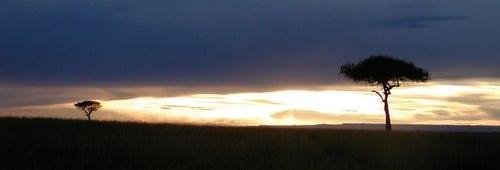.JPG) food restaurants, kinds of toothpaste, and varieties of potato chips. Even so, there are some things for which Kenya offers more choices than the US. Obviously, there are many more kinds of animals and birds and fruits and
food restaurants, kinds of toothpaste, and varieties of potato chips. Even so, there are some things for which Kenya offers more choices than the US. Obviously, there are many more kinds of animals and birds and fruits and .JPG) regularly spoken languages in Kenya than there are in the US. Another area where there's more difference is in different kinds of matchboxes.
regularly spoken languages in Kenya than there are in the US. Another area where there's more difference is in different kinds of matchboxes.As best we can remember, there are only a couple of kinds of matchboxes on offer at Walmart or Safeway or Albertsons. Even these boxes are very utilitarian--either decorated with company ads for matches given away by 7-11 or other companies, or with obvious labels like"Safety .JPG)
In Kenya, we rarely see people smoking. People mainly and +(2).JPG)
.JPG)
This blog post includes pictures of several diffrent kinds of matchboxes. With the understanding that not everyone is fascinated by matchboxes :-), here's a little information about each one:
- Falcon--Made in Pakistan. The back of the package gives the company founder's name: Hussain Almoudi.
- Flora--Made in Kenya. This is a good thing. In some respects, the fact that nearly all of the matches are made outside the country is a lesson about one of Kenya's challenges: it needs more national manufacturers and fewer imports.
- Zebra--Made in South Africa and imported by a Nairobi company.
- Leopard--Made and purchased in Malawi. Back and front are identical.
- Sparky--Made in Pakistan. The back of the box says "Approximately 45 splints."
- Farasi--Made in Kenya. Farisi means "horse" in Kiswahili. One travel blog writer calls these the "best matches in the world" because they are coated with wax to make them almost 100% waterproof.
- Rhino--Made in India. The back text says, "The right match at the right price! Manufacturing perfection, Excellent Quality, That's your Rhino."
- Three Stars--Made in Sweden. This is a larger box with 200 matches compared to the smaller 40-45 match boxes.
- Rambow--Made in Pakistan. The back text says, "Carbonized Damp Proof. Average 45 Sticks. Superior Quality."
- Kangaroo--Made in India. On the back is a picture of Augustine Okocha, a Nigerian football (soccer) player, although on the matchbox his name is misspelled "Okicha."
.JPG)
.JPG)

.JPG)
.JPG)
.JPG)




2 comments:
I love this................Chinsinsi Phiri
Hello, Mark and Nancy,
I have enjoyed reading your blog this evening, catching up on your activities and adventures there. I am about to leave for church where we are having a revival with Dr. M.V. Scutt doing the preaching. Love and prayers, Dad
Post a Comment